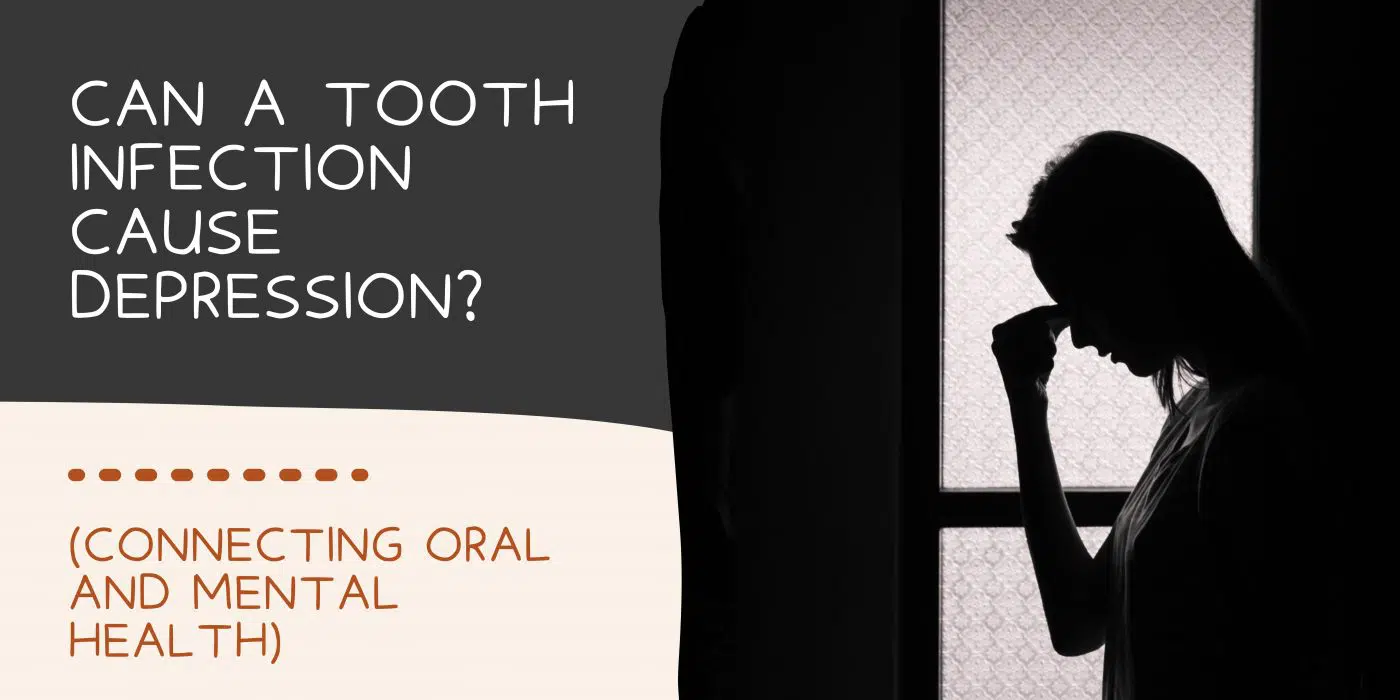
Growing research and studies reveal the link between dental health and overall health. But, what about when it comes to mental health? Can a tooth infection cause depression? Is there really a connection between dental hygiene and mental health? There is. Positive oral health can enhance mental and overall health, while poor oral health can exacerbate mental issues. And, certain mental conditions can also cause oral health issues.
At Penn Dental Family Practice, we strive to provide education, awareness, and treatment for a myriad of health conditions. This includes helping our patients better understand the connection between oral health and mental health.
Continue reading to learn more about the interconnectedness of positive oral health and mental health, and why—even amidst a pandemic—it’s important to maintain routine dental visits and optimal dental care.
The relationship between overall health and mental health is a cyclical one. Essentially, evidence demonstrates that patients with mental health issues are less likely to take proper care of their physical health. Alternately, those with impaired physical health may neglect their emotional and mental health. In both scenarios, the body can become deprived of the nutrition, activity, and healthy habits needed to promote positive physical and mental health. In turn, an individual’s self-image, self-esteem, and self-worth are also affected.

- Depression is associated with higher abuse of alcohol, caffeine, and tobacco, which may cause tooth erosion and decay.
- Depression can cause self-neglect, which often results in poor oral hygiene, gum disease, and consequential tooth decay.
- Bipolar affective disorder often causes over-brushing that may damage gums and cause dental abrasion, mucosal lacerations, or gingival lacerations.
- Bipolar patients treated with lithium have a higher rate of xerostomia and stomatitis.
- Acids from vomiting make patients with eating disorders more susceptible to tooth decay.
- Side effects of antipsychotic, antidepressant, and mood stabilizer drugs may include a higher susceptibility to oral bacterial infections.
Here is what we know about how poor dental health can lead to mental health issues:
- Poor dental health affects speech, which can cause significant social anxiety. Likewise, bad breath can exacerbate social anxiety.
- Patients with mental illness are 2.8 times more likely to have lost all their teeth, affecting physical appearance, self-esteem, and self-image.
- Similarly, patients with mental illness have higher statistical rates of tooth decay and missing teeth, which impacts physical appearance and self-image.
COVID-19, Mental Health, and Stress-Related Oral Health Conditions
While more and more news has uncovered how the coronavirus has impacted the mental health of Americans—increasing stress, anxiety, pre-existing mental health conditions—more recent reports highlight the effects of the pandemic in relation to dental health.
According to a dentist poll conducted by the American Dental Association (ADA), there has been a 59.4% rise in bruxism (teeth grinding), 53.4% increase in chipped and cracked teeth, 53.4% boost in temporomandibular disorder (TMJ) symptoms, 26.4% increase in dental caries (cavities), with periodontal disease rising by 29.7%.
These statistics and additional reports have helped reveal that not only should routine visits to the dentist continue, but are also considered as safe as they are essential. In fact, the ADA recently confirmed that the incidence of coronavirus cases among dentists has continued to remain less than 1% (conclusive of a six-month time period).
Helping Patients Prevent Poor Oral and Mental Health Problems
At Penn Dental Family Practice, we continue to keep oral hygiene, safety, and the overall health of our patients a top priority. This means that we abide by the latest dentistry guidelines recommended by the ADA, Centers for Disease Control and Prevention (CDC), and Pennsylvania Department of Health to keep our patients and staff protected and safe.
If you have not been to the dentist in a while and could use additional guidance to help select the right dental practice for you, we’d like to help by sharing our complimentary comparison chart: “The Evidence You Need To Pick The Right Dentist.”
We can’t stress enough, the importance of maintaining routine dental visits. Regular cleanings and exams will not only help provide you a foundation for positive oral health, but they will also give you added assurance in encouraging balance in your mental health as well.
Read the full article by CLICKING HERE



Comments are closed.